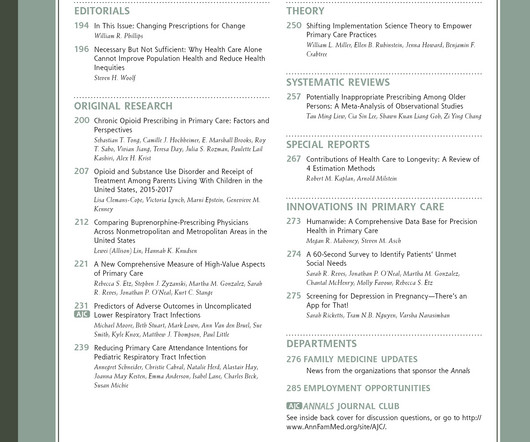"Survival Mode": Experiences of moral distress in Canadian primary care professionals during and after the COVID-19 pandemic [COVID-19]
Annals of Family Medicine
NOVEMBER 20, 2024
The moral distress experienced by primary care professionals during the pandemic has not been discussed in the extensive literature on health system functioning during the pandemic. Intervention/Instrument: Individual semi-structured interviews and review of pertinent case-relevant documents.





































Let's personalize your content